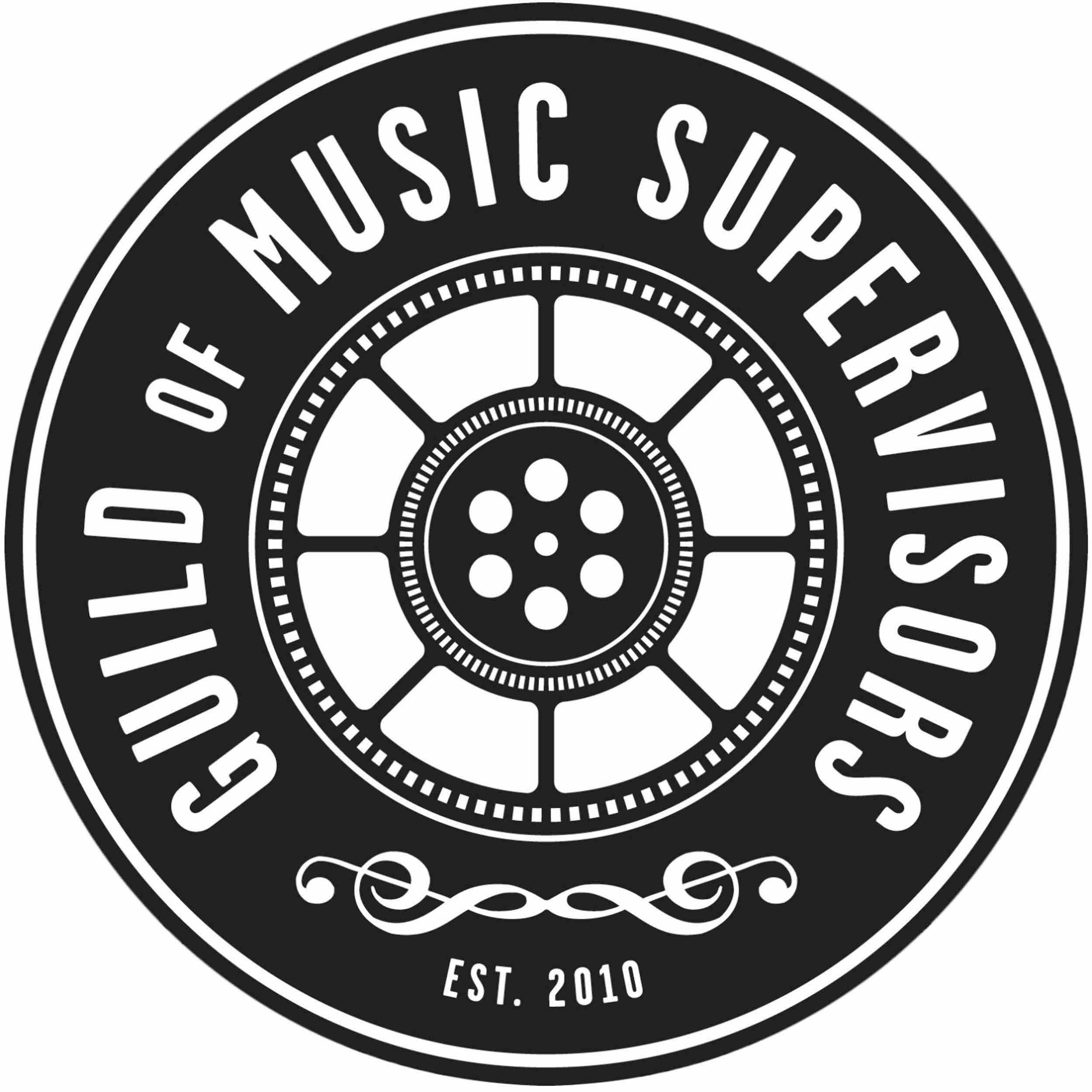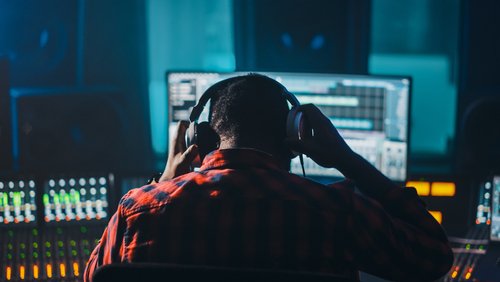How Do You Find Music Supervisors Looking for Songs?
November 12, 2022

The Guild of Music Supervisors has over 500 members and growing, so there are a lot of opportunities for artists and songwriters when it comes to pitching your songs to music supervisors looking for music.
As well, the US Census Bureau estimates that as of 2021, there are over 10,500 TV production companies and more than 4,385 movie and film production companies in the United States alone.
That means there are 30 times as many US productions as there are music supervisors. And that doesn’t even include advertising, the gaming industry, videos, or any other media that are looking to sync music.
It’s no wonder that music supervisors are looking for music for multiple projects all the time. This is why independent music like yours gets placed in TV and film so often.
So how do you find music supervisors who are looking for songs like yours?
It’s up to you to do your homework before you pitch your songs to a music supervisor.
We’ll get into that further down this article. First, let’s look at why music supervisors looking for music tend to rely on the people they know and trust.
In this Sync Songwriter post, we’ll take an in-depth look at how to prepare for and approach music supervisors looking for songs like yours and cover:
- Why music supervisors rely on trusted sources
- Sync briefs – what they are and why your music must be “on target”
- Writing authentic sync-friendly music
- Music ownership
- Broadcast Quality music only
- Pitching your songs to music supervisors
Music Supervisors Rely on Trusted Sources?
Music supervisors can be super busy with multiple projects on the go at once. At any given time, they can be simultaneously working with showrunners, producers, directors, and editors for multiple productions.
They also must also ensure they meet the budgets and deadlines of the film and TV studios that hire them.
Music supervisors looking for music must screen and pre-clear the songs they pitch and secure the sync rights for the chosen music. Turnaround times can be very tight, especially for television.
Because of this, music supervisors don’t have the time or resources to deal with musicians who are new to sync licensing.
Unfortunately, there is no room for novices or newbies. You will need to pitch your music like a pro if you want your music to be heard.
Sync Briefs
When music supervisors are looking for music, they typically send out a sync-briefs to their trusted music sources including music libraries, record labels, sync agents, publishers, musicians, producers, and composers whom they have relationships with.
That’s because they know that these trusted sources will only pitch songs that are on target for what is outlined in the brief and will be broadcast quality.
The sync brief outlines the type of music they are looking for and usually has a description of the project and sometimes even the scene the music will be used in. It also indicates what the deadline is, which is usually tight.
That is one of the reasons you need to have your track ready to go immediately. There is no time to record or re-mix it.
Music supervisors are always looking for sync-worthy songs and these placement opportunities could be in any genre. But no matter how great a song may be, you don’t want to pitch it if it doesn’t match what is being asked for in the brief.
Keep in mind. sync licensing briefs are almost never released to the public, so if you see one, it’s probably old or not real.
When pitching your music for sync licensing, you need to do it the right way to earn your place as a trusted music source.
Sync Friendly Music
Even though most music supervisors looking for music will say that almost any song can be synced to the right project, some songs are more sync-friendly than others.

Create Authentic Music
Music supes want authentic music. They can almost always tell when a song is authentic or if it has been written specifically for sync. Authenticity wins every time.
Write from the heart in the style or genre you are most comfortable with and create music that you love. If you try to write in a style of music that is outside your wheelhouse, you likely won’t be as good at it as the artists who are in that genre.
Niche Music
There are fewer placement opportunities for niche genres like Polkas, Vocal Jazz, New Age, or any style that falls outside what you might hear on mainstream radio or in TV and film.
That said, when these placement opportunities do come up, your niche music could be a big fish in a small pond since there is far less competition. If you do something well that is not as common, it increases the value of what you do.
In most cases, music supervisors will reach out to music libraries or trusted production houses to find the niche music they are looking for. However, you can more easily become a trusted source simply by having what other people don’t.
Instrumentals

Instrumentals get used for placement opportunities as well but in most cases, the instrumental music will be written by the project’s composer or sourced from a music library.
Ironically, music supervisors looking for music will generally also ask for the instrumental version of your song. Having both the vocal and instrumental versions will allow the TV or film editors a lot more flexibility when mixing the song for the scene.
If you only write instrumental music that is more like sonic soundscapes than a defined melody, you may have better luck placing your music with a reputable music library.
Music Ownership

Music supervisors looking for music will need to know who owns the songs you submit.
Do you own your songs 100% or do you have co-writers? Have you signed a publishing deal, a record deal, or given your producer/engineer points on the song for a reduced price on the recording? Do you own 100% of the master recording?
Unless you own 100% of the song and the masters, you will first need to get permission from your co-writers/co-owners to allow you to represent the song.
Split-Sheet Contracts
For collaborations and songs that you have co-written, you will need to have your co-writers sign a split-sheet contract. This will outline what percentage each of the writers owns and the total percentage must add up to 100%.
Work-for-Hire Contracts
If you paid musicians, vocalists, and the producer to create the recording, it’s a good idea to also have them sign a work-for-hire contract. This will indicate that they’ve been paid for their services and have no stake or ownership in the song or the recording.
Publishers & Record Labels
If you are an independent musician and not signed to a record label or publisher, then you automatically own 100% of the song and the master recording unless you have co-writers.
If you have signed with either a label or publisher, you will need to get written permission from them to allow you to pitch your songs for sync licensing.
Music Ownership Summary
You must know without a doubt who owns your songs and who owns the masters before you pitch your songs to music supervisors looking for music.
If there are other stakeholders, you will need to also provide their contact information and ownership details to the music supervisors. If you are unsure, you might want to talk to an entertainment lawyer first.
Broadcast Quality Music Only

Try this experiment.
- Name some of today’s top artists that your songs sound like or were influenced by.
- Place your songs in a playlist with those same artists.
- Does the quality of your recordings sound as good as theirs?
Your songs must sound as good as anything else that would get placed by a music supervisor.
Broadcast quality simply means your music needs to be properly recorded, mixed, and mastered and sounds like everything else that gets on the radio or on TV and on film.
How Do You Pitch Your Songs to Music Supervisors?
We discussed how the songs you pitch need to be broadcast quality. Your pitch is no different.
To attract the attention of the music supervisors your pitch needs to be as professional as their trusted music sources.
Since you are not a trusted source and you don’t have access to sync briefs, there are several things you need to do before you start pitching your songs to music supervisors who are looking for music.
- Research music supervisors and the shows they work on using sources like IMDB, Tunefind, and WhatSong.
- Target your songs to the right projects and the right music supervisors.
- Prepare your songs and ownership details in advance so the music supervisor will have all the information they need.
- Include metadata properly formatted with your contact information on all your MP3 files.
- Prepare your music pitch and keep it short and professional.
- Send download links that are also streaming and will not expire. Never send music files as attachments.
- Don’t expect a reply from music supervisors, they are extremely busy, and don’t follow up with them too soon.
Music supervisors prefer using DISCO, Dropbox, and Box. DISCO is music management software created by music supervisors for music supervisors. For artists, it is a great place for keeping and organizing your music catalog.
Learning everything about researching, targeting, and preparing your songs and sync pitch is well beyond the scope of this article, but you can find out a lot more about it on our blog, How to License Your Music.
About Sync Songwriter
Sync Songwriter was created by Chris SD, a JUNO award-winning producer.
Our mission is to not only help independent artists and songwriters learn and understand the sync licensing world but to also help them build relationships with music supervisors.
Our goal is to teach you how to be a sync licensing professional and then introduce you to top music supervisors looking for music.
We can show you what you need to do and more importantly, what not to do when preparing and pitching your songs to music supervisors. We’ll also show you how to find the right sync placement opportunities for your music.
Music supervisors looking for music are the gatekeepers of the songs that make it into TV shows, films and ads.
At Sync Songwriter, we introduce you to some of the industry’s top music supervisors because building relationships is vital to your success in sync licensing.
If you still have questions about how sync licensing works or about sync, feel free to reach out. Contact us.
Leave a Reply
Hey! Give us a shout about anything really.
contact Sync Songwriter
Our goal is for you to start getting your music into TV & film.
Great post thank you.